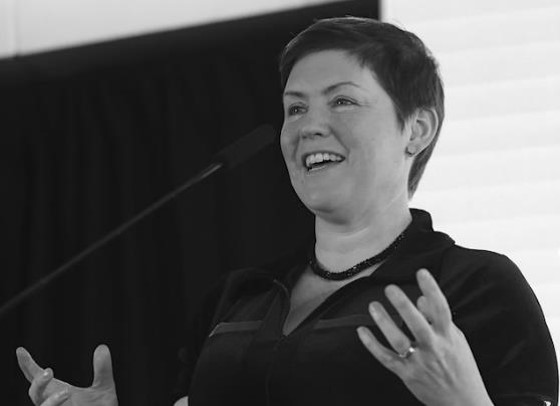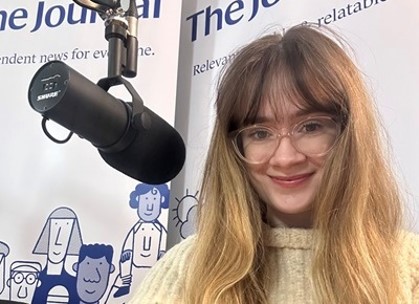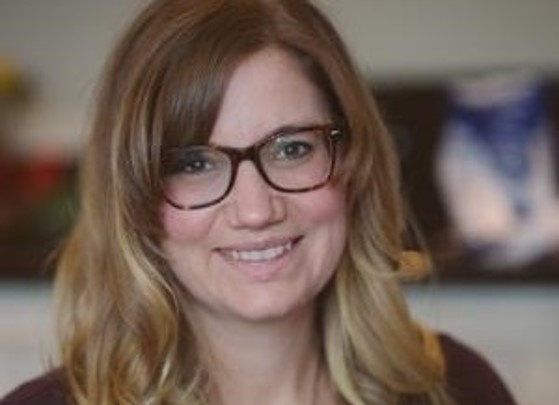Earth Institute Journalist-in-Residence programme
UCD Earth Institute is home to a journalist-in-residence programme, an innovative initiative to provide early career and established journalists with the opportunity to work directly with environmental and sustainability researchers in UCD.
The residencies aim to:
- strengthen the communication between journalists and researchers
- offer journalists the opportunity to learn more about environmental, climate and sustainability research in UCD
- encourage Earth Institute members and UCD researchers to learn more about the journalistic process and opportunities to engage with the media
- to support high-quality journalism around environmental research
Residencies are open journalists, staff or freelance, active in any media format: print, radio, television, blog, podcast etc.
About the residencies
Earth Institute journalists-in-residence can connect with the research and teaching communities at UCD, engage Institute members projects, research groups and laboratories. The annual fellowships enable journalists to spend a full-time equivalent of one month at UCD.
We would welcome applications from freelance and employed journalists with at least two years of experience working in one or more media (print, online, radio, television, podcast etc) who regularly reports or writes about environmental and sustainability issues, climate change, science or technology in Ireland.
We provide:
- A €2,500 or €3,500 gross payment, depending on career experience, to cover living expenses
- Desk space and access to UCD’s library, events and other university resources
- Connections with an interdisciplinary research network including UCD Earth Institute members and research groups
The structure of the residency is open to discussion and could include flexible working arrangements, e.g. one day a week or two two-week residencies etc, as well as hybrid (in person and virtual) elements, subject to professional and/or caring responsibilities outside of the residency. Hybrid working may be possible after initial introductions and connections are made but successful applicants are encouraged to spend a significant amount of their fellowship on the UCD campus and/or engaging with UCD staff, researchers and research groups or projects. Unfortunately, UCD cannot provide accommodation nor can UCD provide assistance with finding accommodation.
Resident journalists are expected to:
- Engage in the life of the UCD Earth Institute and UCD by attending events and activities
- Be proactive in making connections with UCD researchers beyond formal introductions to relevant researchers, research groups, research themes and/or strategic projects
- Organise or participate in other events for UCD Earth Institute researchers possibly including mentorship and training workshops
- Deliver a short 10-15 minute introductory talk for the UCD Earth Institute community around time of starting
Resident journalists are free to pursue their own research interests in the context of UCD Earth Institute and encouraged to exchange ideas with researchers and staff. The successful applicant/s will retain full editorial independence.
Evaluation
The UCD Earth Institute journalist-in-residence fellowship panel will base its decision on the following criteria:
- Experience, skills and suitability of applicant
- Approach
- Residency plans
- Engagement with Equality, Diversity and Inclusion (EDI)
- Samples of work provided
Successful applications will be chosen by the UCD Earth Institute journalist-in-residence steering group which includes Earth Institute members, UCD communications staff, and external journalist representatives.
How to apply
The 2025 call is now closed. The scheme runs an annual call for applications, with the next call expected to be launched in autumn 2025.
Terms and conditions
- Applicants may only submit one journalist residence application per call
- The proposed media project must be new, i.e. it must not have been previously broadcast or published in any format
- The primary audience of all media must be in the Republic of Ireland
- Applicants who are already in receipt of funding from UCD or who are in full-time paid employment by UCD are not eligible to apply.
- Applicants must have the right to live and work in the EU
For successful applicants:
- Copyright of the final product(s) will remain with the applicant. However, materials produced must be made available – free of charge – for potential future use by the UCD Earth Institute and/or UCD including on UCD websites and social media accounts. The UCD Earth Institute and/or UCD will at all times acknowledge copyright.
- The gross payment of €2500 or €3500 FTE will be processed as hourly payments based on timesheets submitted by the applicants and signed off by UCD Earth Institute staff. The payment will be paid through UCD payroll with PRSI and tax deducted at source. UCD will not provide pension contributions.
- UCD cannot provide accommodation nor can UCD provide assistance with finding accommodation
Acknowledgement: The successful applicant will acknowledge the UCD Earth Institute journalist in residence scheme supports by including, where possible, “This article was supported by the UCD Earth Institute as part of its journalist-in-residence fellowship” or their title as journalist-in-residence at UCD Earth Institute at end of the article, an acknowledgement by programme presenter at end of the broadcast or programme credits or as a strap line during the broadcast or on website.
Diversity and inclusion: UCD is committed to creating an environment where diversity is celebrated, and everyone is afforded equality of opportunity regardless of gender, age, race, disability, ethnic origin, religion, sexual orientation, civil status, family status, or membership of the travelling community. We welcome applications from everyone, including those who identify with any of the protected characteristics that are set out in our Equality, Diversity and Inclusion policy. The University adheres to a range of equality, diversity and inclusion policies. Applicants are encouraged to consult UCD’s policies and explore UCD’s Equality, Diversity and Inclusion Strategy 2018-2020-2025 which sets out the University’s objectives aligned to UCD’s ten equality grounds.
2024 journalists

Dr Claire O'Connell
Dr Claire O’Connell holds a B.Sc. and a Ph.D. from University College Dublin and a M.Sc. in Science Communication from Dublin City University. Claire has been writing for The Irish Times about science, health and innovation since 2005, and she has written for numerous other publications, including Silicon Republic. She has published two non-fiction books:Catching the Worm, Towards Ending River Blindness and Reflections on My Life (Royal Irish Academy, 2020), written with Nobel laureate Professor William C. Campbell, and Work. Life. Lessons from Leaders (Royal Irish Academy, 2023), a collection of insights from leaders in academia, industry, medicine and politics. Claire recently edited the Midlands Science guide Making Science Outreach More Accessible. In 2016, Claire was named Irish Science Writer of the Year.
Why did you apply for the residency?
I was excited by the prospect of having time to explore the work being done across many disciplines in UCD Earth Institute. So often as a journalist you speak to a researcher about a specific aspect of their work for a specific article you are writing. I figured the residency would give me time and space to get broader perspectives on the research, and to find new insights that I might not otherwise have done.
Did you set out with a particular goal to direct your work?
My interest was in interfaces, which is where interesting things happen. That might be the interface between two different academic disciplines - like archaeology and food science - or the interactions between humans and other species, or even between microbes and plants in the soil. These boundaries and interactions are fascinating and often crucial to our understanding of the world.
What have you done, broadly, in the residency to date?
I have had a lot of coffee and chats with people. Some of those chats were planned, others were more spontaneous - I encouraged people to say hi if they saw me around campus and we could organise a time to meet. These conversations are already informing several newspaper articles and also a potentially a deeper writing project for the future. I also worked with various groups of researchers at UCD Earth Institute to help support them in their communication.
What has stood out to you from your time with the Earth Institute?
The level of collegiality, and how having a common interest can bring different minds together. I have also felt highly supported and involved and welcome.
What kind of impact do you think the residency will have on your future work?
Deep and lasting. Getting the chance to spend time in this multi-disciplinary environment has both broadened and deepened my understanding of sustainability and ecosystem and climate issues and solutions, and this will inform and enrich my future work.

Lauren Boland
Lauren joined The Journal team in 2020 during the height of the Covid-19 pandemic and has covered many of the world’s rolling crises since then, from Covid-19 and conflicts to, most notably, climate change. She has covered major climate news in Ireland and abroad, penning stories reporting on scientific research and extreme weather events to climate action plans and policy debates. Lauren attended COP27 in Egypt and COP28 in the UAE, where she produced written and multimedia content tailored to an Irish audience. She is the author of The Journal’s monthly climate newsletter Temperature Check and regularly contributes to radio and television programmes to discuss climate and other current affairs.
Why did you apply for the residency?
Often in journalism we're working o projects with tight turnarounds. I applied for the residency because looked like a really interesting opportunity to be given some time and space and access to researchers working in the area of climate and environment, to learn more about what they are doing and and to have the dedicated time and resources to work on a project of my own.
Did you set out with a particular goal to direct your work?
The project that I'm doing is going to be through the medium of a podcast looking broadly at the theme of climate anxiety, climate guilt, how people respond emotionally to climate change, and also where responsibility or ownership is or isn't being taken for climate change and climate action at national, international or sectoral levels.
What have you done, broadly, in the residency to date?
So far, I have spent two weeks in person on the UCD campus. During those two weeks, I spent the majority of my time at meeting with researchers, which was a brilliant way to connect with people and hear about the different types of research that are happening in UCD around topics related to climate and the environment. Some of this research will be really useful for the project that I'm working on currently, and other research is sparking ideas for future articles. I am building up a sense of who has expertise in which areas where there might be opportunities for us to connect again in the future. On particular topics, I also attended lots of events while I was at UCD Earth Institute, and I did some behind-the-scenes work on the podcast project.
What has stood out to you from your time with the Earth Institute?
What stood out was the vastness and variety of the research work that's being conducted, and the level of specialisation and nuance that comes in with a lot of people's area of research. I heard about some of the really interesting work that's happening in Ireland that a lay person might not necessarily know about, the scientific research that goes really deep into the nooks and crannies of very specific climate issues. At first glance it could seem hyper-specific, but this research can have really important implications for climate change as a whole, or for Ireland's response to climate change.
What kind of impact do you think the residency will have on your future work?
It has been a really useful tool to develop connections with researchers, to better understand the kind of work that's happening in different areas, to be able to introduce myself to researchers, and it means they hopefully now will find it easier to get in touch with me and, particularly for the early-career researchers, more generally feel more comfortable speaking with journalists.

Janine Kennedy
Janine Kennedy is a freelance food journalist and previously Acting Food Editor at Irish Country Living/Irish Farmers Journal. Janine is a two-time Irish Food Writing Awards winner and was Acting Features Editor when Irish Country Living won the Newsbrand Award for Newspaper Magazine of the Year in 2021; Janine continues to write Irish Country Living’s weekly food features. During her residency with us, Janine plans to create a podcast series on the past, present and future of Irish food.
Why did you apply for the residency?
The Earth Institute Journalist in Residence programme looked like a great opportunity to collaborate with climate researchers and expand on my work as a food and agricultural journalist. I had just recently gone back to freelance journalism from a permanent, full-time role when I saw the residency announced, so the timing worked out for me, as well. It has been a very long time since I have spent any amount of time on a university campus, but I recall my own university experience very fondly and have always had a soft spot for academia.
Did you set out with a particular goal to direct your work?
I love a good food story and Ireland has such a storied history when it comes to food, politics, climate and colonialism. I want to tell the story of Irish food and agriculture from the perspective of researchers, food producers, farmers and other journalists, so I came into this residency with that very plan.
What have you done, broadly, in the residency to date?
There is much planning to be done before I begin my project, and so I am still very much in the planning stages of my residency.
What has stood out to you from your time with the Earth Institute?
The spirit of collaboration among Earth Institute members is really refreshing. Working in the world of agricultural journalism you tend to see a lot of polarisation between climate activists and farmers, but in my experience the two groups have a lot in common and have very similar goals for the future. I love seeing the different areas of research coming together because it provides a lot of much-needed context to the extremely complex issues surrounding food production in the face of the climate crisis.
What kind of impact do you think the residency will have on your future work?
My work will likely be profoundly affected by this residency through engaging with ongoing research here at UCD. I really hope it will benefit the wider farming and food-producing community, as well.